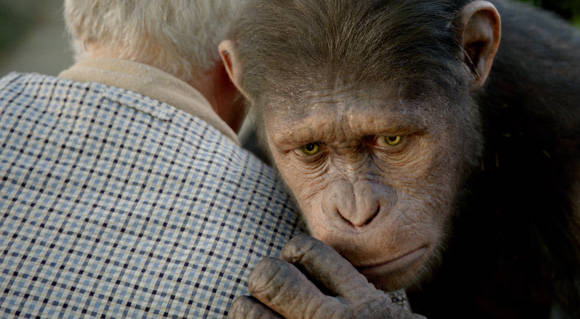Paul and I rambled on and on about our favorites of 2011 in our second season finale, but that isn’t gonna stop us from rambling some more. This is the first in a series of top 10s that will be spread out over the next couple weeks; the rest will concern television, albums, and comic books.
But first, a word about lists. Paul has described my obsession with list-making as a “sickness,” and that’s probably close to the truth. However, even one such as I, beholden to rating and ranking everything known to man, know that these kinds of things are imperfect, to put it lightly. For one, no matter how all-inclusive you try to be, there’s always going to be a movie (or show, or comic, etc.) that you somehow missed; for example, as of this writing, neither Paul nor I have seen The Girl with the Dragon Tattoo, Shame, or Tinker, Tailor, Soldier, Spy, just to name a few. And more importantly, lists are always subject to how their makers feel at the moment they’re making them. Each of our top 10s represent the movies we love right now, and with the exception of our #1 choices, their order could be fluid, changing from day to day, mood to mood.
Right now, though? These are the films we adore, and which we feel exemplify 2011.
~ AJ
PAUL: 10. RISE OF THE PLANET OF THE APES (dir. Rupert Wyatt)
The summer blockbuster that was better than any of us had any right to expect. Not only a remarkably capable relaunch/reboot of a beloved but dated franchise, but also just a damned good popcorn flick in its own right. Andy Serkis brings heart and humanity (pun intended) to the “inhuman” protagonist. It’s Pinocchio and Moses and Che Guevara.
AJ: 10. GEORGE HARRISON: LIVING IN THE MATERIAL WORLD (dir. Martin Scorsese)
It has been lazy shorthand for decades to refer to George Harrison as the “quiet Beatle,” and though that might have a kernel of truth to it, the man himself was far more complex. Publicly, he was quiet because he desperately hated fame; professionally, he was quiet during the Beatle years because John and Paul vetoed his material, and later, because he was content with tending to his family and to his garden. Martin Scorsese’s Bob Dylan documentary No Direction Home definitively captured that 60s icon’s brilliance and enigma, and while Living in the Material World doesn’t quite do the same for this 60s icon, it comes close enough. In the first part of this two-part doc, the entire life cycle of The Beatles is rehashed yet again, though considering it’s Scorsese at the helm, it remains of interest. It’s in the second part, however, when things truly come alive. By telling of his unsung career as a film producer, enticing candid stories from a number of those closest to him, and showing private home movies, Scorsese paints a portrait of Harrison as a man perpetually struggling to reconcile his spirituality with his materialism, caught between divinity and mortality.




